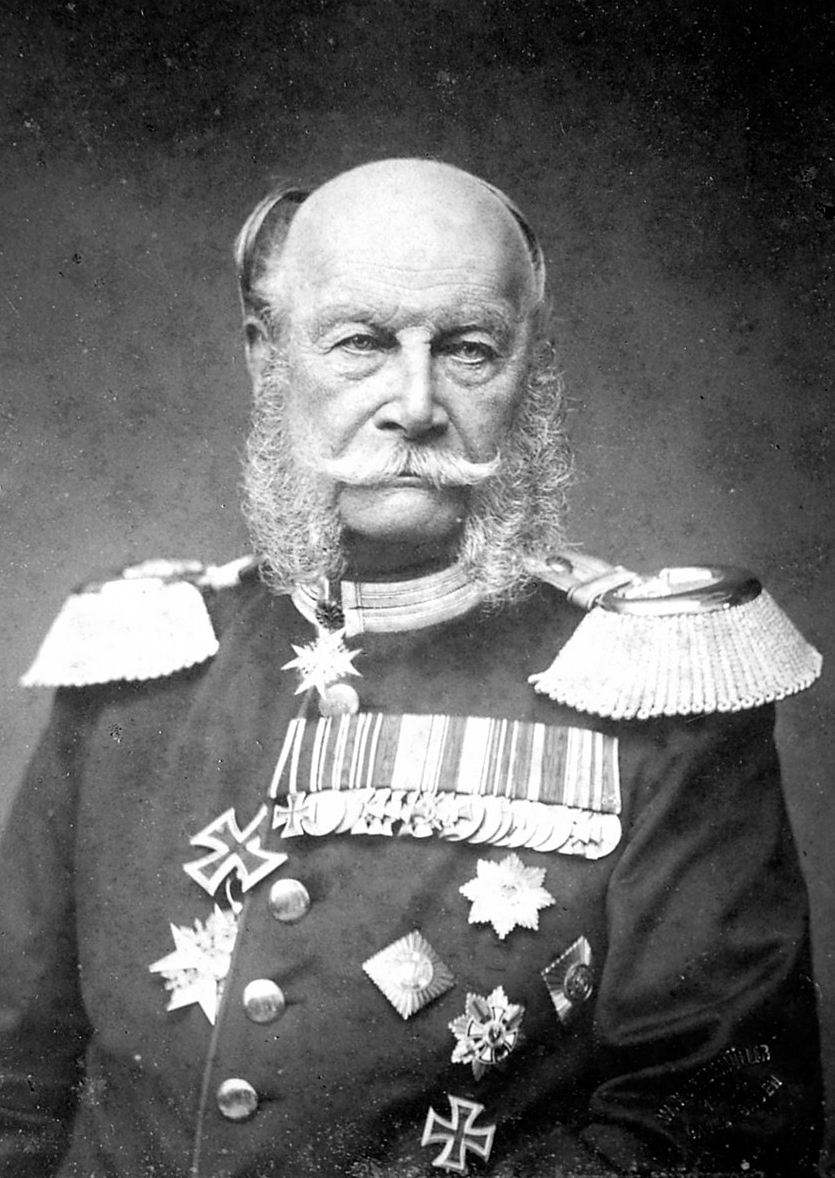William I, German Emperor
 William I or Wilhelm I (Wilhelm Friedrich Ludwig; 22 March 1797 – 9 March 1888) was King of Prussia from 2 January 1861 and German Emperor from 18 January 1871 until his death in 1888. A member of the House of Hohenzollern, he was the first head of state of a united Germany. He was ''de facto'' head of state of Prussia from 1858, when he became regent for his brother Frederick William IV. During the reign of his grandson Wilhelm II, he was known as Wilhelm the Great ().
William I or Wilhelm I (Wilhelm Friedrich Ludwig; 22 March 1797 – 9 March 1888) was King of Prussia from 2 January 1861 and German Emperor from 18 January 1871 until his death in 1888. A member of the House of Hohenzollern, he was the first head of state of a united Germany. He was ''de facto'' head of state of Prussia from 1858, when he became regent for his brother Frederick William IV. During the reign of his grandson Wilhelm II, he was known as Wilhelm the Great ().The second son of Prince Frederick William and Louise of Mecklenburg-Strelitz, William was not expected to ascend to the throne. His grandfather, King Frederick William II died the year he was born, and his father was crowned Frederick William III. William fought with distinction during the War of the Sixth Coalition, and afterwards became a prominent figure within the Prussian Army. In 1840, his childless elder brother became King of Prussia, making him heir presumptive. William played a major role in crushing the Revolutions of 1848 in Germany, although he was briefly forced into exile in England. Frederick William IV suffered a stroke in 1857 and was left incapacitated, and William was formally named Prince Regent a year later. In 1861, William ascended to the Prussian throne on his elder brother's death.
Upon ascension, William immediately came into conflict with the liberal Landtag over his proposed military budget. In response, he appointed Otto von Bismarck to the post of Minister President in order to force through his proposals, beginning a partnership that would last for the rest of his life. On the foreign front, William oversaw Prussian victories in the Second Schleswig War and the Austro-Prussian War, establishing Prussia as the leading German power. In 1871, through Bismarck's maneuvers, the unification of Germany was achieved following the Franco-Prussian War. The German Empire was proclaimed and William was granted the title of German Emperor. Even though he had considerable power as ''Kaiser'', William largely left the affairs of the state to Bismarck. Later in life he was the target of multiple failed assassination attempts, which enabled Bismarck to push through a series of anti-socialist laws. In 1888, which came to be known as the Year of the Three Emperors, William died at the age of 90 after a short illness and was succeeded by his son Frederick. Frederick, already suffering from cancer, died 99 days later and the throne passed to Wilhelm II. Provided by Wikipedia